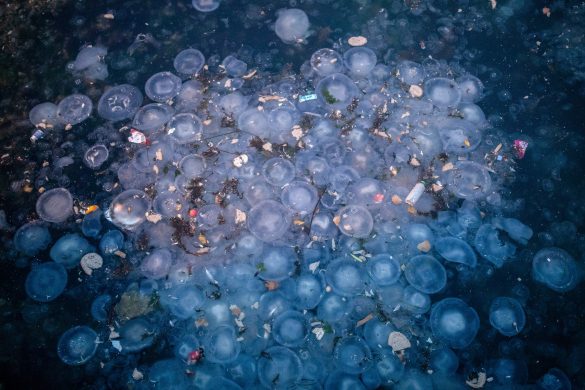The World Bank Thursday (23 June) approved a loan of 325 million US dollar (2 milliarder DKR) to assist the Government of India with the implementation of the Maharashtra Water Sector Improvement Project (MWSIP) in this Indian state of approximately 100 million people.
The objective of the project is to strengthen the states capacity for multisectoral planning, development, and sustainable management of the water resources; and to improve irrigation service delivery and agricultural productivity.
Maharashtra (with Mumbai (Bombay) as its capital) is the second largest state geographically and has the third largest population in India. Approximately 58 percent of the states population is located in rural areas, of which 80 percent are dependent on agriculture for their livelihood, and the poverty rate is estimated to be 32 percent.
The availability of water is highly uneven, as rainfall occurs only 40 to 100 days a year. Maharashtras water sector faces the following challenges:
– increased competition within the sector;
– rapidly growing urban centers and industries;
– poor performance of irrigated agriculture;
– poor irrigation service delivery; and
– a lack of multisectoral and integrated planning and management of water resources.
Improved irrigation service delivery and water productivity is expected to enhance the irrigation coverage by about 22 percent and crop yields by 5 to 20 percent.
– This project will contribute towards achieving the objectives of sustainable economic growth and poverty reduction through maximizing the productivity of water through the improvement of water resources management and irrigation service delivery, says Michael Carter, World Bank Country Director for India, adding:
– It is estimated that as a result of this project farm incomes on average are expected to increase by 49 percent, and about 33.610 farm families who are fully dependent on agriculture will be brought above the poverty line at the projects closure.
The MWSIP comprises of the following four components:
1) Water Sector Institutional Restructuring and Capacity Building.
This component focuses on institutional reforms that will strengthen the state’s capacity for multisectoral planning, development, and management of state’s water resources on a river basin basis.
2) Irrigation Service Delivery and Management.
This component will improve irrigation system performance and quality of irrigation service to farmers, promote effective participation of water user’s associations in management of irrigation schemes, increase cost recovery, implement water entitlements, and raise the level of agricultural support services delivery.
It will also rehabilitate and modernize 286 selected irrigation schemes covering about 670.000 hectares of culturable command area, enhance the safety of 291 dams, help in capacity building of water users associations, improve water management practices and instruments, strengthen agriculture support services, and implement a social and environmental management plan.
3) Innovative Pilots.
This component will support four user-centered aquifer level groundwater management and four innovative irrigated agriculture pilot projects.
4) Project Management.
This component will support
– a state-level Project Preparation and Management Unit,
– project monitoring and evaluation via an agency external to the Government of Maharashtra, and
– communications campaign to create awareness about the project initiatives and to build broad-based consensus and support for the Maharashtra State Water Policy and reform program.
– The MWSIP will initiate some path-breaking initiatives that will have a substantial impact on water sector management at the national level. These include the establishment and administration of water entitlements among water-using sub-sectors in the State, bulk supply and volumetric pricing of water, and establishing the Maharashtra Water Resources Regulatory Authority, says R.S. Pathak, a Senior Irrigation Engineer at the World Bank.
– The World Bank has worked closely with the Government of Maharashtra over the past two years, and this project builds on the experiences of ongoing projects in Andhra Pradesh, Rajasthan, Uttar Pradesh, and the multi-state National Agricultural Technology Project, added he.
The loan, from the International Bank of Reconstruction and Development (IBRD), the World Banks lending arm, is a Variable-Spread Loan with a maturity of 20 years, including a grace period (afdragsfri periode) of five years.
For more information on World Bank activities in India, please visit:
www.worldbank.org/in
Kilde: www.worldbank.org














